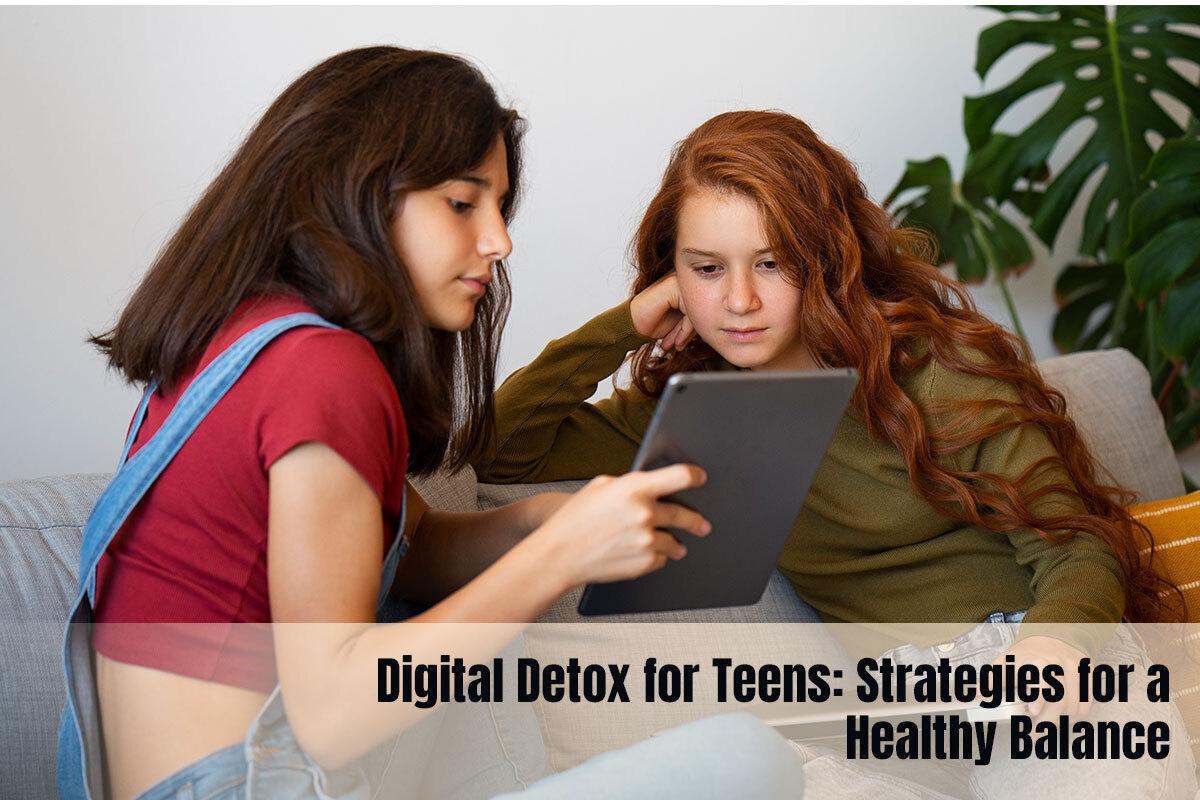
Smartphones and the Internet - once viewed as a boon - have become the bane of our society. According to research, 97% of teenagers use at least one major social media platform, like TikTok, Instagram, Facebook, and Twitter. And there's no doubt that Gen Zs are literally raised on smartphones because they received them at a far younger age than the millennials.
Whether you like it or not, teenagers are hardwired to stay connected with their friends, and they seek the dopamine rush provided by video gaming and social media.
But is too much screen time harmful for teenagers? Let's understand the harmful effects of technology and learn strategies to strike a healthy balance.
Negative Effects of Staying Glued to Digital Devices
Teenagers' brains are still developing, and this makes them much more susceptible to the negative effects of technology. Some of those effects are:
-
Depression and social anxiety - Social networking encourages teens to compare themselves to others, resulting in low self-esteem. It also creates FOMO (fear of missing out) when they see their friends going on trips their families cannot afford. This results in the feeling of loneliness, depression, and social anxiety.
-
Gaming addiction - Gaming addiction is considered similar to substance abuse or gambling addiction. Teens are unable to control their obsession with video gaming, and this leads to mental disorders and problems with memory, learning, and focus.
-
ADHD symptoms - Research suggests teens who are obsessed with digital media are much more likely to develop symptoms of ADHD.
-
Sleep deprivation - Technology has the effect of keeping teens alert so they can continue scrolling and not miss on any new Reels or updates from their friends. The artificial blue light given off by digital devices activates arousing neurons in the brain and disrupts the body's ability to produce melatonin, a sleep-inducing hormone.
These adverse effects of technology can be reduced through digital detox. Unplugging is key to striking a balance. Let's learn more about this.
Strategies for a Digital Detox
Digital detox is a period of time during which an individual refrains from using digital devices connected to the Internet. This is an opportunity to improve focus, reduce stress, and interact with others. It also helps prevent digital addiction.
Helpful strategies to help teenagers unplug are:
-
Reset all settings
Instead of deleting single apps and media files, resetting all settings will give your teen's device a fresh start. For instance, if your teen is using an iPhone, an iPhone reset all settings will go back to the factory settings, and then you can limit the number of apps your teen can download and use to stay on top of what technology your kids are using.
-
Set screen time limits
Educate your teen regarding the negative effects of excessive screen time, and then establish limits. Enforce these limits using parental control features on digital devices.
-
Establish screen-free days as a family
Take digital detox retreats as a family. Maybe keep two out of four weekends in a month to enjoy screen-free days. Spend those days engaging in family-friendly activities, such as catching up on what's going on, playing treasure hunt, cooking, going to the park, etc.
-
Create tech-free zones in the house
Designate certain areas in the house as tech-free zones, such as the dining room and bedroom.
-
Encourage tech-free activities
Dig out board games, dust them off, and have a family tournament. You can also head outside to engage in activities, such as rock climbing, joining a ropes course, snowboarding, cooking class, a dance class, etc. Such activities will not just encourage your teens to put aside their phones but also have them engage in physical activities and boost family bonding.
-
Teach teens alternative ways to self-soothe
Teens usually turn to the distraction of screens when they are bored or feeling unhappy. Parents need to teach them alternative methods of staying engaged, such as journaling, meditation, reading books, or any other offline hobby.
-
Be a positive role model
As parents to teenagers, the best way to teach them healthy screen habits is to lead by example. You also must engage in self-care practices and offline activities and limit your screen time. You can become positive role models to your teenage son or daughter by practicing these habits.
-
Encourage open communication
Create a positive environment where your teens can come to you with all their concerns, worries, and questions relating to everything and anything under the sun. Encourage open communication so they don't have to turn to the Internet and their social media friends for answers.
If you've exhausted these strategies and to no avail, don't hesitate to seek professional help. Digital addiction is a significant problem that can impact the physical and mental well-being of teenagers. The disorders they develop may stay with them throughout their adulthood.
Remember, the goal isn't to completely remove technology from their lives because that's impossible. Instead, it is to establish a healthier balance where technology is used for betterment and growth.



























